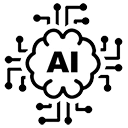Educating the public about Generative AI presents several challenges that can hinder understanding and responsible use of this technology. Below are some of the key challenges:
1. Complexity of Technology
Generative AI involves complex algorithms and concepts that can be difficult for the general public to grasp. The technical jargon and underlying mathematics can create barriers to understanding.
Example: Simplifying Technical Concepts
def simplify_concept(concept):
simplified = {
"Generative AI": "AI that creates new content based on patterns in existing data.",
"Neural Networks": "A system that mimics how the human brain works to process information."
}
return simplified.get(concept, "Concept not found.")
# Example usage
concept = "Generative AI"
simplified_concept = simplify_concept(concept)
print("Simplified Concept:", simplified_concept)
2. Misinformation and Misunderstanding
The rapid advancement of Generative AI has led to the spread of misinformation and misconceptions. This can result in fear, skepticism, or unrealistic expectations about the technology.
Example: Misinformation Detection Function
def detect_misinformation(content):
misinformation_keywords = ["AI will take over", "AI can think like humans"]
return any(keyword in content for keyword in misinformation_keywords)
# Example usage
content = "AI will take over all jobs in the future."
is_misinformation = detect_misinformation(content)
print("Misinformation detected:", is_misinformation)
3. Lack of Standardized Education
There is currently no standardized curriculum for teaching Generative AI, leading to inconsistencies in the quality and depth of education provided across different platforms and institutions.
Example: Curriculum Development Function
def develop_curriculum(topics):
curriculum = {topic: "Introduction to " + topic for topic in topics}
return curriculum
# Example usage
topics = ["Generative AI", "Machine Learning", "Ethics in AI"]
curriculum = develop_curriculum(topics)
print("Developed Curriculum:", curriculum)
4. Accessibility of Resources
Access to quality educational resources about Generative AI can be limited, particularly in underserved communities. This can exacerbate existing inequalities in technology literacy.
Example: Resource Accessibility Check
def check_resource_accessibility(resources):
accessible_resources = [res for res in resources if res["accessible"]]
return accessible_resources
# Example usage
resources = [
{"title": "AI Basics", "accessible": True},
{"title": "Advanced AI Techniques", "accessible": False}
]
accessible_resources = check_resource_accessibility(resources)
print("Accessible Resources:", accessible_resources)
5. Rapidly Evolving Technology
The field of Generative AI is evolving rapidly, making it challenging to keep educational content up-to-date. This can lead to outdated information being disseminated.
Example: Update Educational Content Function
def update_content(content, new_information):
return content + "\nUpdated with: " + new_information
# Example usage
current_content = "Generative AI is used for image generation."
new_info = "Recent advancements include text generation and music composition."
updated_content = update_content(current_content, new_info)
print("Updated Educational Content:\n", updated_content)
6. Conclusion
Educating the public about Generative AI is fraught with challenges, including the complexity of the technology, misinformation, lack of standardized education, accessibility issues, and the rapid pace of advancements. Addressing these challenges requires collaborative efforts from educators, technologists, and policymakers to create clear, accessible, and up-to-date educational resources that empower individuals to understand and responsibly engage with Generative AI.

